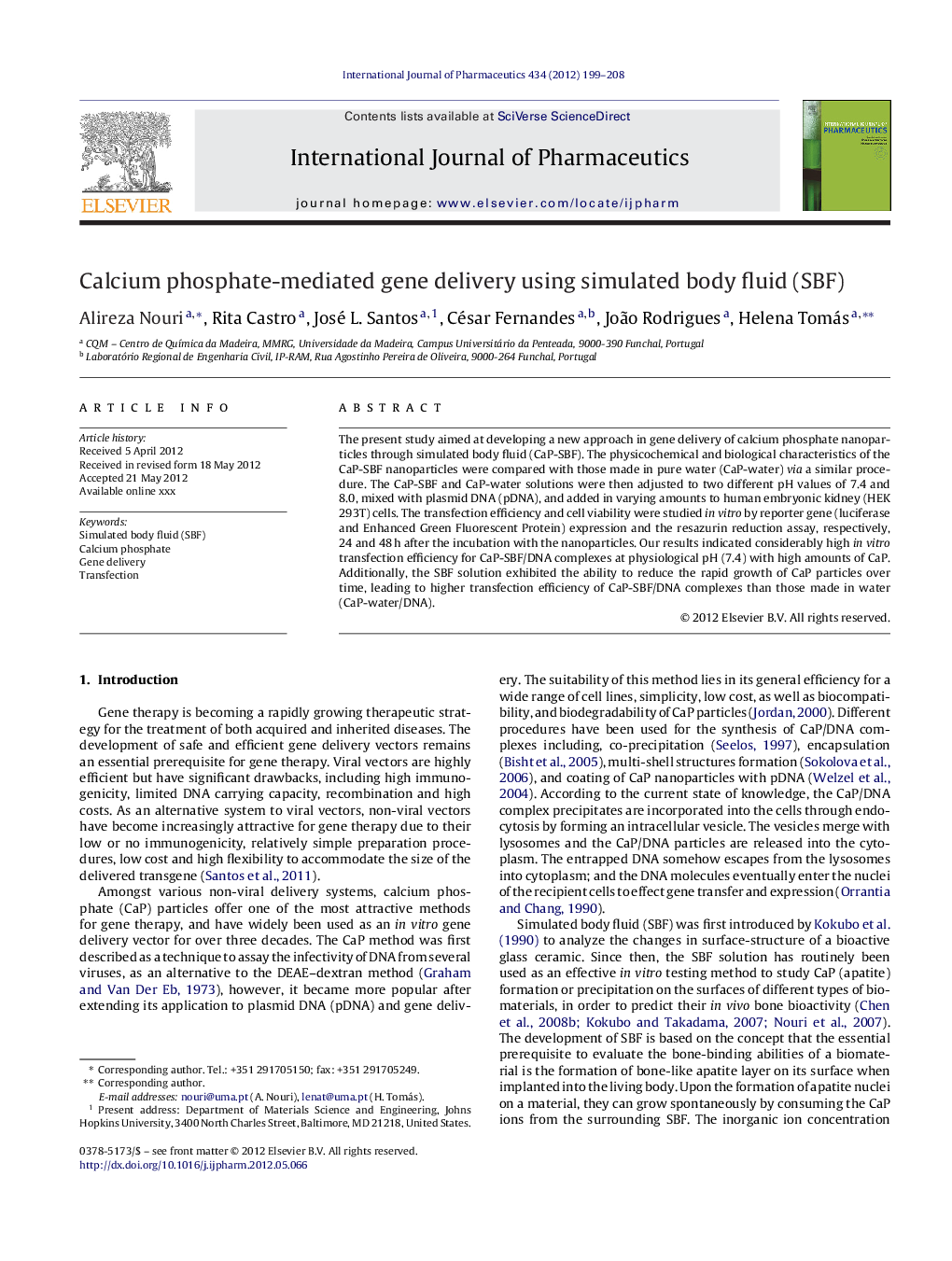| Article ID | Journal | Published Year | Pages | File Type |
|---|---|---|---|---|
| 5820501 | International Journal of Pharmaceutics | 2012 | 10 Pages |
Abstract
The present study aimed at developing a new approach in gene delivery of calcium phosphate nanoparticles through simulated body fluid (CaP-SBF). The physicochemical and biological characteristics of the CaP-SBF nanoparticles were compared with those made in pure water (CaP-water) via a similar procedure. The CaP-SBF and CaP-water solutions were then adjusted to two different pH values of 7.4 and 8.0, mixed with plasmid DNA (pDNA), and added in varying amounts to human embryonic kidney (HEK 293T) cells. The transfection efficiency and cell viability were studied in vitro by reporter gene (luciferase and Enhanced Green Fluorescent Protein) expression and the resazurin reduction assay, respectively, 24 and 48Â h after the incubation with the nanoparticles. Our results indicated considerably high in vitro transfection efficiency for CaP-SBF/DNA complexes at physiological pH (7.4) with high amounts of CaP. Additionally, the SBF solution exhibited the ability to reduce the rapid growth of CaP particles over time, leading to higher transfection efficiency of CaP-SBF/DNA complexes than those made in water (CaP-water/DNA).
Related Topics
Health Sciences
Pharmacology, Toxicology and Pharmaceutical Science
Pharmaceutical Science
Authors
Alireza Nouri, Rita Castro, José L. Santos, César Fernandes, João Rodrigues, Helena Tomás,
